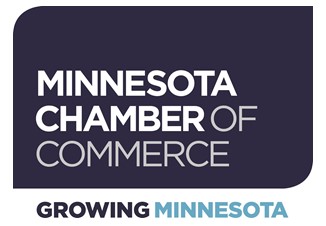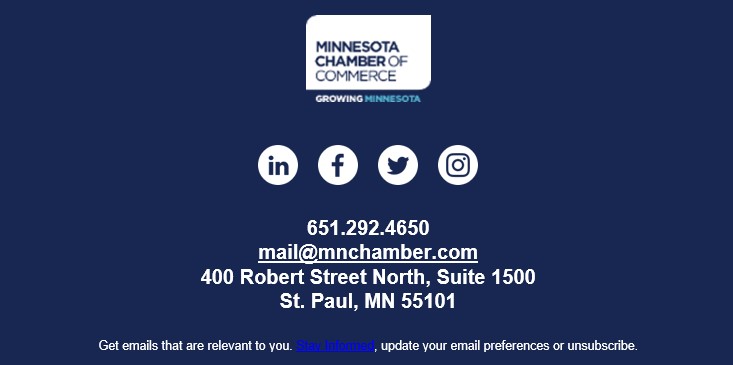 How does state and federal legislation impact Minnesota businesses?
How does state and federal legislation impact Minnesota businesses?
In the last few days (and hours!), both the federal government and state Legislature have passed legislation that will speed critical funds to Minnesota businesses and families. Our staff has worked tirelessly to help shape these bills and ensure lawmakers keep our immediate health and economic needs in mind.
The federal Coronavirus Aid, Relief and Economic Security, or “CARES” Act includes:
- Emergency grants for small businesses to cover immediate operating costs.
- Forgivable loans for small businesses, up to $10 million per business, administered through the Small Business Administration (SBA).
- Relief for small businesses on existing SBA loans.
- A refundable tax credit for businesses of any size that are impacted by COVID-19. The credit covers up to 50 percent of payroll on the first $10,000 of compensation, including health benefits, for each employee.
- An additional 13 weeks of unemployment insurance, as well as increased unemployment benefits, and broadened eligibility.
Minnesota’s legislation includes:
- An additional $332 million for COVID-19-related needs in the state. The bill codifies some of the governor’s executive orders and supplemental budget requests to provide additional funding for small business loans, childcare grants, homeless, food shelves and other COVID-19 resources.
- A loan guarantee program for small businesses that are unable to access SBA disaster loan assistance.
- $30 million for the Small Business Emergency Loan program for emergency loans to small businesses.
- An extension of the timeline for property tax valuation appeals, so taxpayers will not miss the ability to dispute/appeal their market valuation assessment.
These measures, particularly through the power of the federal government, will help to mitigate some impacts on businesses. We will continue advocating for more relief for businesses, particularly delaying tax payments to preserve cash flow. Delaying payments would allow businesses to use capital now, for payroll and other immediate costs, but still guarantee payment at a later date. Minnesota has allowed some delays for sales tax payments and for the April 15, 2019 income tax payments for individual taxpayers (including pass-through entities that pay through individual income tax) but not for other business taxpayers that pay taxes at the entity level.
Do you have a question about how these relief packages can help your business?
The Chamber will record a webinar on Monday focused on the details of this legislation featuring:
- Executive Vice President and Chief Policy Officer Neil Bradley of the U.S. Chamber
- President Doug Loon of the Minnesota Chamber
- Senior Vice President for Advocacy Laura Bordelon of the Minnesota Chamber
Please submit your questions in advance here. We will email a link to the webinar video on Monday afternoon.
As always, the Minnesota Chamber is here to listen to your concerns and advocate on your behalf throughout this crisis. Please tell us what you’re experiencing and what you need. Your feedback helps us understand the immediate and future challenges for business and bring your business much-needed one-on-one assistance.
